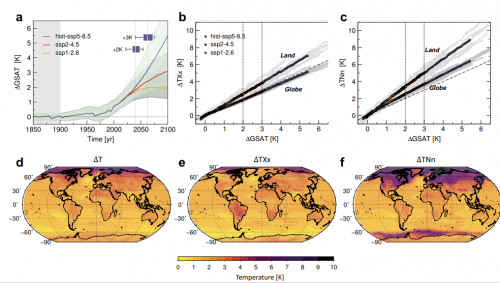
Published on Nature Communications a new study by two ISAC-CNR Bologna researchers, Claudia Simolo and Susanna Corti. The study provides new elements for understanding the complex behavior of extreme events in present and future climate, evidencing key factors for their intensification. Research identifies temperature variability as a key factor for the frequency and intensity of such events. Using the most recent available numerical simulations of present and future climate, this study reveals the crucial role of natural variability, together with the rise in mean temperatures, quantifying it rigorously in terms of impacts on extreme events.
Particularly in the Tropics, the limited natural variability is responsible for the extraordinary increase in anomalous warm events and explains why these regions are so vulnerable to the effects of climate change.
According to Dr. Simolo, "some areas of the planet are affected by extreme warm events at an unprecedented rate, while others are affected by a larger number of extreme events, with dramatic consequencies on human societies and ecosystems: nevertheless, the fundamental mechanisms of amplification are still unclear, adding uncertainty to future projections".
"On the other hand, rapid rise in summer temperatures over Europe and the Mediterranean region - related to the progressive soil drying - is the driver of more intense and persistent extreme heat waves", Dr. Corti adds.
Results of this study provide important perspectives on the improvements of projections for models in the next future.
